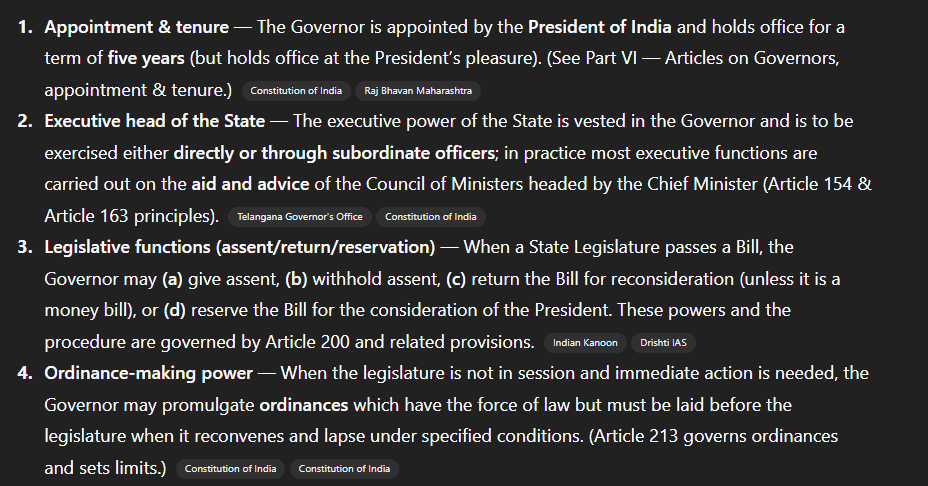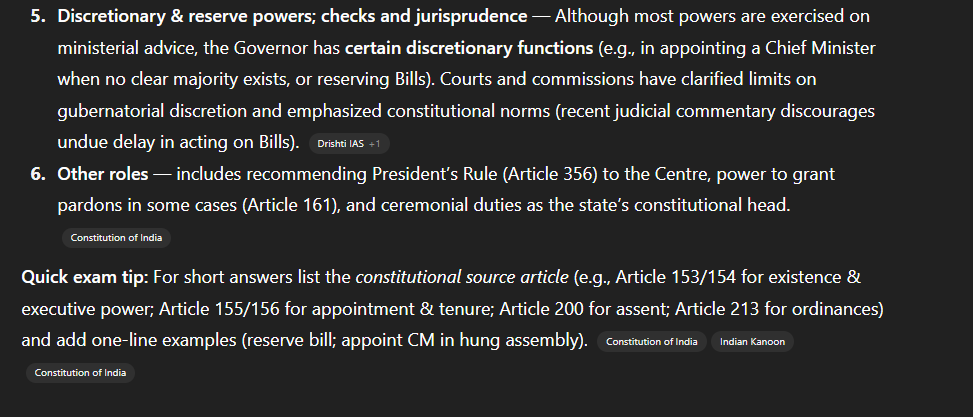How to Study For NDA Exam with ChatGPT ?
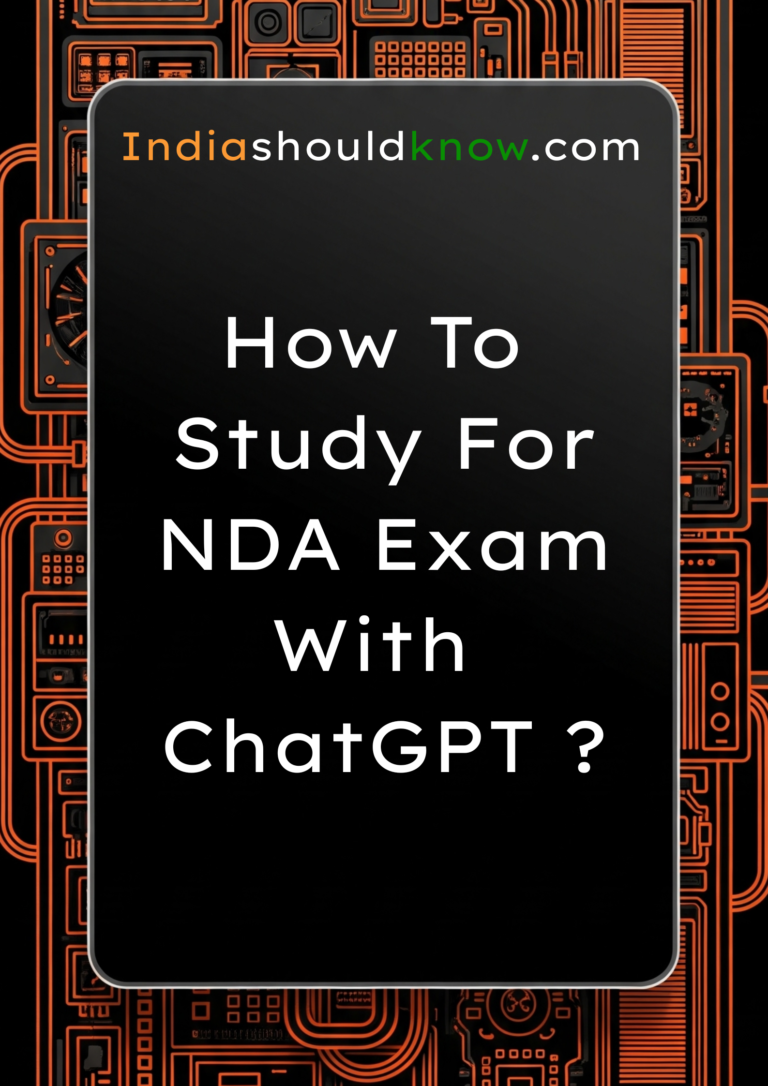
Index
- Introduction – Preparing For Your NDA Exam With ChatGPT.
- How To Use ChatGPT Input Methods For NDA.
- Examples About Using ChatGPT Prompts For NDA Subjects.
- Practice Using AI & Prompting With Google AI Chatbot.
- Conclusion
- FAQs.
- Related Articles.
Your Path to NDA Success with Your AI-Powered Study Partner: ChatGPT
Preparing for the National Defence Academy (NDA) exam is a journey that requires dedication, discipline, and smart strategies. With subjects ranging from Mathematics to General Ability (which includes English, Physics, Chemistry, General Science, History, Geography, and Current Affairs), the NDA syllabus is vast.
This is where ChatGPT can act as a 360-degree support tool — functioning like your personal tutor, quizmaster, and doubt-solving assistant. When used alongside standard study materials such as NCERT books, reference guides, and mock tests, ChatGPT enhances understanding, boosts confidence, and adds interactivity to your preparation.
Starting with ChatGPT in November 2022, AI has become a core part of my daily routine as a digital professional. I interact with tools like Google Gemini to get better at my job and explore new areas. This practical use even extended to building this website. AI is a powerful tool for achieving your goals if you have the interest to learn.
How Can ChatGPT Help with NDA Exam Preparation ?
Get clear answers and in-depth explanations for questions on advanced topics in Mathematics, General Ability (GAT), and any other NDA subject. The content is crafted by those with a strong understanding of the exam’s unique challenges.
Easily find helpful videos, books, and other online resources from established and trusted sources to deepen your understanding of NDA topics.
- Access sample papers and practice material meticulously crafted to mirror the NDA exam’s style and difficulty, helping you build confidence through reliable preparation.
Get assistance with NDA project material, find verified images, statistics, and all the material you need for a competitive edge.
Everything you need to conquer the NDA exam is right here,
Ready to Learn how to study anything in your NDA Exam syllabus with the help of OpenAI's powerful tool ChatGPT ?
All You Need is
- Your notes or your text book
Before you start, you need access to ChatGPT. You can either download the app or use it on your browser:
On mobile (iOS or Android):
Download ChatGPT from the App Store
Download ChatGPT from Google PlayOn browser:
Visit ChatGPT on web
Create a free account or log in.
- Read this article to learn how
That’s All you need to make yourself a tutor ready to answer all your questions, at anytime for FREE !!!
And remember to share this article with anyone you think may need it.
How To Use ChatGPT Input Method's For NDA Exam
1. Text Prompts

Type your queries, doubts, or previous year questions directly. Useful for concept explanations, MCQ practice, and grammar correction.
Example Prompt: “Explain the structure of the Indian Constitution in simple language.”
2. Voice Input
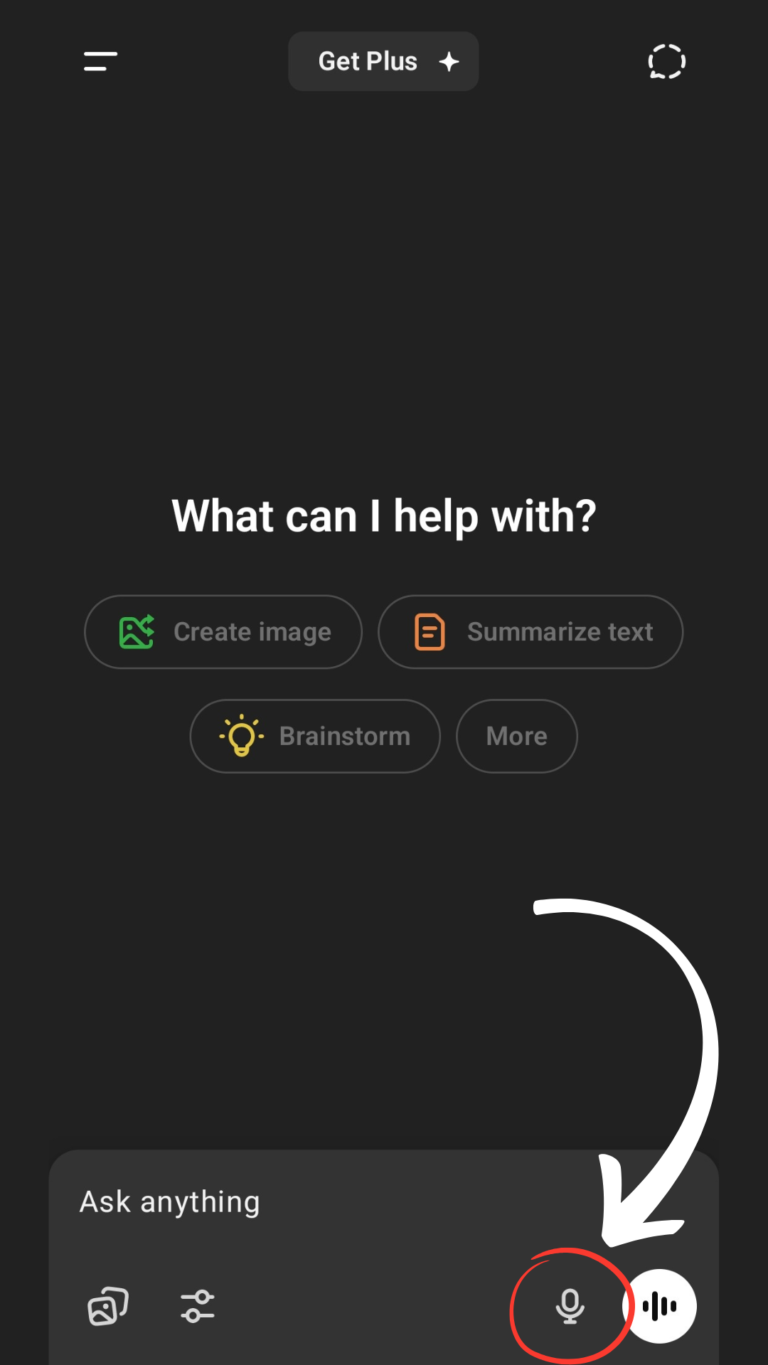
Speak your questions directly to ChatGPT using voice input — perfect when revising during walks or breaks.
Example Prompt (spoken): “Give me 5 important current affairs topics from the past month related to defence.”
3. Image Input
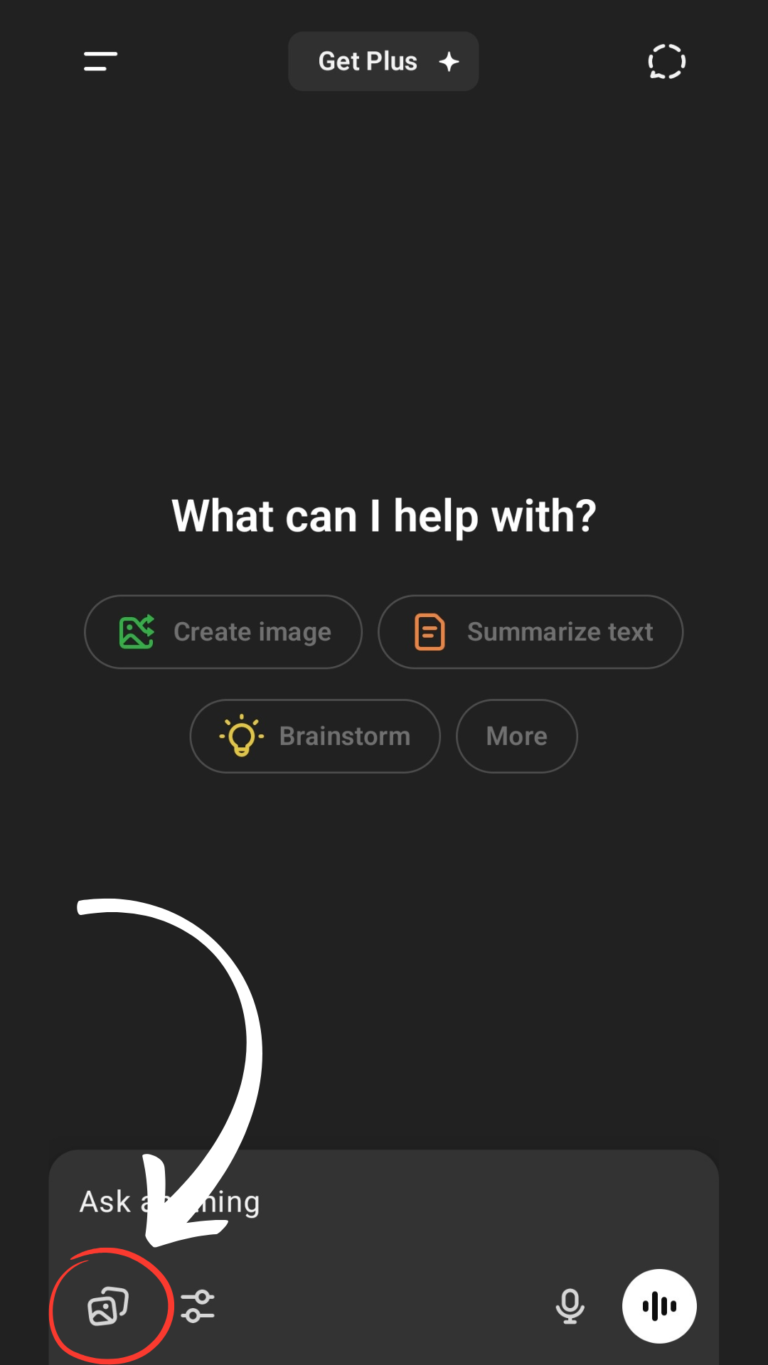
Upload textbook pages, diagrams (like maps or circuits), or handwritten notes. Great for visual learners and last-minute revision.
Example Prompt: Upload a map of India and ask, “Mark the states with international borders and explain their strategic importance.”
Example Prompts For Using ChatGPT For NDA Exam Preparation.
Example 1: NDA Mathematics Question

Your ChatGPT Text Prompt
Upload Image Of Equation.
Answer the equation in this image and provide a step by step explanation.
How ChatGPT Will Answer (Like a Personal Tutor):
ChatGPT currently supports 20 Indian languages. Some are - Hindi, Bengali, Gujarati, Kannada, Malayalam, Marathi, Tamil, Telugu, and Urdu.
Click to enlarge.
Example 2: NDA General Knowledge Question
Explain the role of the Governor in the Indian Constitution.
Your ChatGPT Text Prompt
“Summarize the Governor’s constitutional position: appointment & tenure, executive powers, legislative functions (assent/return/reservation), ordinance power, discretionary powers and relationship with the state Council of Ministers — cite main constitutional articles or authoritative sources.”
How ChatGPT Will Answer (Like a Personal Tutor):
ChatGPT currently supports 20 Indian languages. Some are - Hindi, Bengali, Gujarati, Kannada, Malayalam, Marathi, Tamil, Telugu, and Urdu.
Click to enlarge.
Click to enlarge.
Example 3: NDA English Section Question
Correct: “He don’t know the answer.” Explain why the correction is needed.
Your ChatGPT Text Prompt
“Fix the sentence for correct subject–verb agreement and explain the rule briefly (singular subject takes singular verb).”
How ChatGPT Will Answer (Like a Personal Tutor):
ChatGPT currently supports 20 Indian languages. Some are - Hindi, Bengali, Gujarati, Kannada, Malayalam, Marathi, Tamil, Telugu, and Urdu.
Click to enlarge.
Practice and Perfect Your Prompts with Our AI Tutor (Powered By Gemini)
How It Works –
- Choose Your Course: Select the subject you want to practice.
Get Your Question: Our AI will ask you a question from the official syllabus.
Write Your Prompt: Try to get the answer by writing the best prompt you can.
Receive Instant Feedback: The AI will provide the correct answer and review your prompt, giving you tips to make it better.
AI Study Assistant
Your AI-Powered Strategy for NDA Success
Preparing for the NDA exam is not just about reading books — it’s about understanding concepts, practicing application, and staying consistent. ChatGPT acts like your virtual mentor, helping you revise, clarify doubts, and test your knowledge in real time.
Whether you’re solving a tricky math problem, understanding constitutional law, or improving your grammar, ChatGPT adds immense value to your preparation. It’s available 24/7, adapts to your learning style, and complements your traditional study tools.
Start using ChatGPT today, and experience how AI can transform your NDA exam preparation — making it smarter, sharper, and more strategic.
Written By
Prateek Singh.
Last Updated – August, 2025
About The Author
Prateek Singh believes the best way to learn is to get your hands dirty. He went from talking to customers in sales to building the online platforms they use. IndiaShouldKnow.com is his way of sharing that practical, hands-on knowledge with you.
FAQs About AI Use.
Q: Can I trust every answer an AI tool gives me for my studies?
A: No, you should not trust every answer completely. Think of an AI as a super-smart assistant that has read most of the internet—but not every book in the library is accurate.
AI can sometimes make mistakes, misunderstand your question, or use outdated information.
It can even “hallucinate,” which means it confidently makes up an answer that sounds real but is completely false.
Rule of Thumb: Use AI answers as a great starting point, but never as the final, absolute truth. Always double-check important facts.
Q: How can I verify the information I get from an AI for my academic work?
A: Verifying information is a crucial skill. It’s like being a detective for facts. Here are four simple steps:
Check Your Course Material: Is the AI’s answer consistent with what your textbook, lecture notes, or professor says? This is your most reliable source.
Look for Reputable Sources: Ask the AI for its sources or search for the information online. Look for links from universities (.edu), government sites (.gov), respected news organizations, or published academic journals.
Cross-Reference: Ask a different AI the same question, or type your question into a standard search engine like Google. If multiple reliable sources give the same answer, it’s more likely to be correct.
Use Common Sense: If an answer seems too perfect, too strange, or too good to be true, be extra skeptical and investigate it further.
Q: What is the difference between using AI for research and using it to plagiarize?
A: This is a very important difference. It’s all about who is doing the thinking.
Using AI for Research (Good ✅):
Brainstorming topics for a paper.
Asking for a simple explanation of a complex theory.
Finding keywords to use in your library search.
Getting feedback on your grammar and sentence structure.
You are using AI as a tool to help you think and write better.
Using AI to Plagiarize (Bad ❌):
Copying and pasting an AI-generated answer directly into your assignment.
Asking the AI to write an entire essay or paragraph for you.
Slightly rephrasing an AI’s answer and submitting it as your own original thought.
You are letting the AI do the thinking and work for you.
Q: How can I use AI ethically to support my learning without violating my school's academic honesty policy?
A: Using AI ethically means using it to learn, not to cheat. Here’s how:
Know the Rules: First and foremost, read your school’s or professor’s policy on using AI tools. This is the most important step.
Be the Author: The final work you submit must be yours. Your ideas, your structure, and your arguments. Use AI as a guide, not the writer.
Do the Heavy Lifting: Use AI to understand a topic, but then close the chat and write your summary or solve the problem yourself to make sure you have actually learned it.
Be Transparent: If you used an AI in a significant way (like for brainstorming), ask your professor if you should mention it. Honesty is always the best policy.
Q: Can an AI's answer be biased? How can I detect this in its responses?
A: Yes, an AI’s answer can definitely be biased. Since AI learns from the vast amount of text on the internet written by humans, it can pick up and repeat human biases.
Here’s how to spot potential bias:
Look for Opinions: Does the answer present a strong opinion as a fact?
Check for One-Sidedness: On a topic with multiple viewpoints (like politics or economics), does the AI only show one side of the argument?
Watch for Stereotypes: Does the answer use generalizations about groups of people based on their race, gender, nationality, or other characteristics?
To avoid being misled by bias, always try to get information from multiple, varied sources.
Q: Is it safe to upload my personal notes, research papers, or assignments to an AI tool?
A: It is best to be very careful. You should not consider your conversations with most public AI tools to be private.
Many AI companies use your conversations to train their systems, which means employees or contractors might read them.
There is always a risk of data breaches or leaks.
A Simple Safety Rule: Do not upload or paste any sensitive information that you would not want a stranger to see. This includes:
Personal identification details.
Confidential research or unpublished papers.
Your school assignments before you submit them.
Any financial or private data.
Related Articles
Sign Up for Our Newsletter To Learn More About the Latest In AI And Learn How To Use It.
Unlock your learning potential and stay ahead in the age of AI! Join the IndiaShouldKnow.com newsletter to discover how to seamlessly integrate AI into your studies for school, entrance exams, college courses, for your Career and Life. Plus, get the latest insights on cutting-edge AI tools that can empower your career and enrich your life. Subscribe now for monthly updates.


